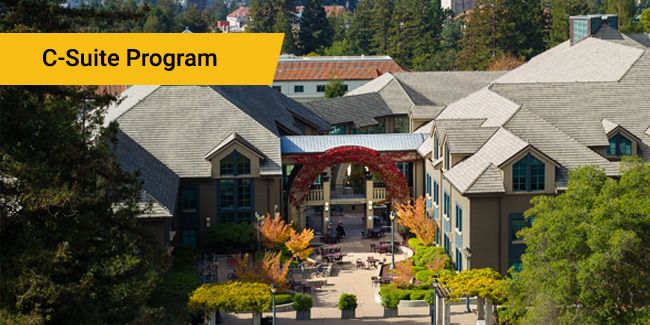What Does a Network Engineer Do? A Comprehensive Guide for 2023

Network engineers play a critical role in many organizations. They are the professionals who build an organization’s network foundations and ensure the smooth running of business operations. So what does a network engineer do exactly? And is it a promising career? This guide to network engineering provides you with a complete overview of the skills, responsibilities, and specializations that are required of a network engineer—as well as the salary expectations—to help you decide if you need to pursue a career in this field or not.
What Skills do Network Engineers Need?
Before we answer the what does a network engineer do question, let’s take a look at some of the key skills needed for the role:
- Expert knowledge of networking concepts and protocols such as TCP/IP, DHCP, UDP, and routing
- Experience with network hardware and infrastructure such as routers, hubs, servers, VPNs, and switches
- Knowledge of firewalls and security for network security
- Knowledge of cloud networking architecture, virtualization, and automation
- Experience with monitoring and troubleshooting complex network issues
- Strong analytical and problem-solving skills
- Excellent communication skills to explain technical concepts to non-technical individuals
- Good time management skills to coordinate various project aspects
Where do Network Engineers Work?
Network engineers typically work for large corporations to mid-sized and small businesses, providing a broad range of services, such as designing, implementing, and maintaining the company’s internal network infrastructure, IT support, and system administration.
Network engineers can work in various industries, including healthcare, education, and research, to maintain and support an organization’s network. These professionals are also required in government and military organizations and are responsible for designing, implementing, and maintaining secure networks that are used to support national defense and other critical government operations. Additionally, network engineers can work as consultants, contractors, or freelancers to provide network design, implementation, and troubleshooting services to a variety of clients.
What Does a Network Engineer do on a Daily Basis?
When it comes to what does a network engineer do on a daily basis, vis-à-vis specific tasks and responsibilities, that can vary depending on the employer and the specific role. In general, network engineers perform a wide range of tasks to ensure that the networks are running properly. Here are some of the key responsibilities of a network engineer:
- Establishing, designing, and implementing the network layout to improve network efficiency
- Performing tasks such as monitoring network traffic, analyzing network logs, and identifying issues to track and improve network performance
- Troubleshooting network issues by identifying the root cause of the problem and developing a plan to resolve it
- Collaborating with other teams such as system administrators or security personnel for resolving issues and ensuring the optimal working of the networks
- Configuring and maintaining various network hardware and software such as routers, switches, and firewalls to ensure network security and efficiency
- Implementing security measures such as firewalls, VPNs, and intrusion detection systems, monitoring network activity for suspicious activity, and responding to security incidents
- Conducting maintenance of network and implementing network upgrade tasks such as installing new hardware or software, upgrading existing devices, or making changes to network configurations
Network Engineer vs. Software Engineer
Network engineers and software engineers both play important roles in the technology field. They nevertheless have different responsibilities and focus on different areas of expertise.
Network engineers are responsible for designing, maintaining, implementing, and troubleshooting an organization’s computer networks. Their tasks include configuring and maintaining network hardware and software, ensuring network security and integrity, monitoring network performance, and troubleshooting network issues. Network engineers focus on the underlying infrastructure that enables communication and data transfer between different devices and systems.
Software engineers, on the other hand, are responsible for designing, developing, and maintaining software systems and applications. Their tasks include writing codes, testing software programs, and working with other team members to design and implement new features. Software engineers focus on developing software solutions that run on top of the infrastructure.
How to Become a Network Engineer
So far, we have addressed what does a network engineer do, their skills, and how they are different from software engineers. The question that now needs tackling is how can one become a network engineer. Let’s take a look at the steps mentioned below:
Step 1. Get the Education You Need
The academic requirements for network engineering can vary depending on the employer and the specific role. However, most network engineers have at least a Bachelor’s Degree in Computer Science, Electrical Engineering, Mathematics, and/or Physics.
Step 2. Consider Certifications
In addition to a degree, network engineers should consider obtaining relevant industry certifications to demonstrate their knowledge and expertise in specific networking technologies. Some common certifications for network engineers include:
- Cisco Certified Network Associate (CCNA)
- Cisco Certified Network Professional (CCNP)
- Cisco Certified Internetwork Expert (CCIE)
- CompTIA Network+
Step 3. Gain Hands-on Experience and Skills
You can gain hands-on experience by interning or working in networking, IT, or related roles. Some employers may also hire you after you have gained some experience in the field and enhanced your skills and knowledge.
Step 4. Consider Online Courses
Online courses are a great investment as they equip you with the skills needed for the field. They are flexible and intensive courses that keep you updated with the latest technologies and boost your employability.
Step 5. Connect with Others in the Industry
Networking with others in the field is a great way to enhance your knowledge. Networking allows you to seek advice, resolve queries, and learn about new job opportunities.
Step 6. Ask for Someone to Mentor You
Look for a mentor who can guide and help you hone your knowledge and expertise in the field. A good mentor can also help shape your career.
Step 7. Apply for Entry-Level Jobs
Create a resume and portfolio highlighting your skills and certifications, and apply for entry-level jobs in related fields to build your experience and profile.
Network Engineer Specializations
Here are some network engineering specializations to consider:
Cloud Networking Architect: Cloud networking architects are responsible for designing, developing, and maintaining the networks that connect cloud-based resources.
Network Security Specialists: They are responsible for securing computer networks and protecting them from cyberthreats.
Wireless Network Engineer: These engineers are responsible for designing, implementing, and maintaining wireless networks.
The Salary of a Network Engineer
According to Glassdoor, here is what the average salary breakdown looks like based on a network engineer’s job role and location:
| Specialization | Average Annual Salary |
| Network Engineer | $90,809 |
| Cloud Network Architect | $101,884 |
| Network Security Specialists | $81,008 |
| Wireless Network Engineer | $74,142 |
| Location | Average Annual Salary |
| U.S.A. | $90,809 |
| U.K. | $59914 |
| Canada | $58,887 |
| Australia | $67,396 |
Is Network Engineering a Good Career?
Network engineering is a fantastic career opportunity, and one that requires hard work, dedication, and continuous learning to excel in it. Given their essential job role in the organization, network engineers are well compensated with salaries typically higher than average. It can be a challenging and rewarding career path for individuals with a strong interest in technology and a passion for troubleshooting and problem-solving.
Before you dive in and make the commitment, remember that network engineers are lifelong learners and need to continuously update their knowledge, skills, and certifications as technology evolves. And now that you know what does a network engineer do and how to become one, take the necessary steps to excel in the field. If you are looking to upskill, check out Emeritus’ technology courses taught by experts from some of the world’s best institutions.
Write to us at content@emeritus.org










































